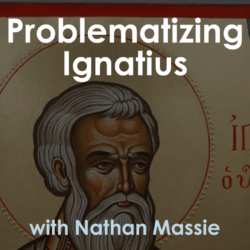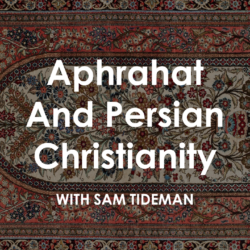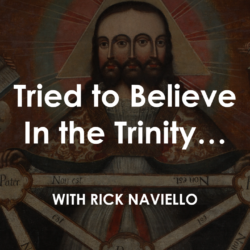This is part 18 of the Early Church History class.
I wonder how many Christians in the world today believe the gifts of the spirit ceased in the time of the apostles? I know there are quite a few. Many others, however, believe they are available today and make time for them in their worship services. This is one of those topics about which we don’t need to guess. We have the historical record and can just look and see if generations after the apostles continue to speak in tongues, prophecy, cast out demons, or perform miraculous healing. In today’s episode we’ll survey what the data say about the first five hundred of Christian history. We’ll also cover the Montanists, a lesser-known movement centered on prophecy, tongues, and asceticism.
Listen to this episode on Spotify or Apple Podcasts
—— Links ——
- Check out our series on gifts of the spirit with interviews from different perspectives here.
- More Restitutio resources on Christian history
- See other classes here
- Support Restitutio by donating here
- Join our Restitutio Facebook Group and follow Sean Finnegan on Twitter @RestitutioSF
- Leave a voice message via SpeakPipe with questions or comments and we may play them out on the air
- Intro music: Good Vibes by MBB Attribution-ShareAlike 3.0 Unported (CC BY-SA 3.0) Free Download / Stream: Music promoted by Audio Library.
- Who is Sean Finnegan? Read his bio here
—— Notes ——
Gifts of the Spirit in General
- Justin Martyr, Dialogue with Trypho 82.1; 88.1
- Irenaeus of Lyons, Against Heresies 2.32.4
- Tertullian of Carthage, On Baptism 20
- Novatian of Rome, On the Trinity 29
- Apostolic Constitutions 8.1-2
Speaking in Tongues and Prophecy
- Didache 11.7-12
- Irenaeus of Lyons, Against Heresies 5.6.1
- Tertullian of Carthage, Against Marcion 5.8; On the Soul 9
- Hilary of Poitiers, On the Trinity 8.33
Montanism (Excursus)
- 165 – Montanus began speaking in tongues and prophesying, initiating a movement called the New Prophecy[1]
- Sayings of Montanus
- “Behold, man is like a lyre and I fly to him like a plectrum. Man sleeps and I stay awake. Behold, the Lord is the one who throws human hearts into ecstasy and gives a heart to men.” (Panarion 48.5.1)[2]
- “I am the Lord God, the Almighty, who abide in man.” (Panarion 48.11.1)
- “Neither angel nor envoy, but I the Lord God, the Father, have come.” (Panarion 48.11.9)
- Maximilla and Priscilla became prophetesses.
- The New Prophecy people emphasized obedience to God, asceticism, fasting, celibacy, and spiritual experiences.
- They rejected remarriage and any serious sin after baptism.
- They survived until the mid-sixth century when Justinian initiated a persecution in Pepuza.
Exorcisms
- Justin Martyr, Dialogue with Trypho 30.3; 76.6; 85.2-3
- Tertullian of Carthage, On the Shows 29
- Origen of Alexandria, Against Celsus 7.4
- Hippolytus, Apostolic Tradition 20-21[3]
Healing and Miracles
- Irenaeus of Lyons, Against Heresies 2.31.2
- Origen of Alexandria, Against Celsus 1.46, 67
- Cyprian, Letters 16.4.1; 39.1.2
- Hippolytus, Apostolic Tradition 14
- Apostolic Constitutions 8.26
Disappearance with Time
- Causes for diminishment
- Reaction to Montanists’ emphasis on the spirit
- Constantinian shift watered down Christianity, resulting in the gifts mainly finding expression among the desert fathers and mothers.
- Rigidity of church services and authority solely among bishops and councils quenched the spirit.
- John Chrysostom, Homilies on 1 Corinthians 29
- Augustine of Hippo, Homilies on 1 John 6
Review
- Christians throughout the first five centuries believed that gifts or charisms of the spirit were available to Christians.
- We have several reports of speaking in tongues as well as prophecy from the Didache, Irenaeus, Tertullian, and Hilary.
- In the second century, Montanus began a movement called the New Prophecy that emphasized the gifts of the spirit.
- New Prophecy leaders included female prophets such as Maximilla and Priscilla as well as a male theologian named Tertullian.
- Though excommunicated by many churches and persecuted by the government from Constantine onward, The New Prophecy movement endured for four centuries.
- Christians associated demons with the gods the pagans worshiped and confidently believed they had the power to drive them out.
- Casting out demons was standard operating procedure in churches both for first-time visitors and at baptisms.
- Miraculous healing, including raising the dead, was well-known to early Christians.
- Church orders said someone with the gift of healing would be obvious to all in the church.
- Over time, possibly due to a reaction against the Montanists, the Constantinian shift, or the rigidifying of church services, the gifts of the spirit diminished.
- By the fourth century, John Chrysostom said speaking in tongues and prophecy had ceased. By the fifth century, Augustine thought it silly to expect tongues.
[1] Others called them Phrygians, Cataphrygians, and Montanists
[2] Epiphanius of Salamis, Panarion 48.5.1, trans. Philip R. Amidon (New York: Oxford 1990), 170.
[3] Available online at http://www.bombaxo.com/hippolytus-the-apostolic-tradition/







Congratulations on your 500th episode!
I do appreciate your Early Church History class and have already gained lots of new insights. Thanks a lot for your work!
One quick question re. speaking in tongues. It seems to me that there is some ambiguity in how this term is used: to denote speaking in a real foreign language unknown to the speaker; or to denote uttering speech-like sounds not recognizable as any existing language.
Glossolalia in Acts 2 clearly represents the former meaning, i.e. the new ability to speak in recognizable foreign languages. I have the impression that this is also the case in the majority of the text passages you cited. This seems quite fundamentally different from what you reported about Montanism and what is happening in Pentecostal and charismatic Christianity.
Therefore, to which degree is it really justified to claim that speaking in tongues as practiced nowadays was part of early Christianity?